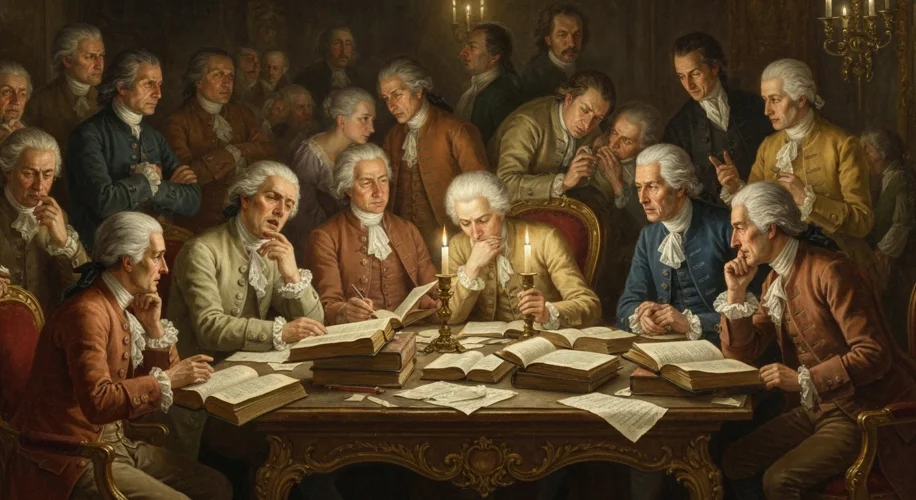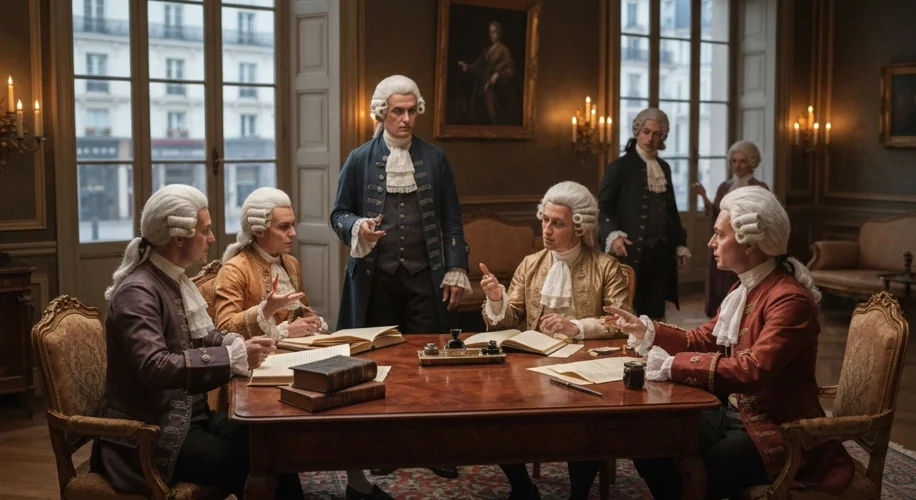Imagine a world where your thoughts, your very existence, were dictated not by divine right or inherited privilege, but by the power of your own mind. This was the audacious promise of the Enlightenment, an intellectual and cultural earthquake that rumbled through the 18th century, shaking the foundations of established power and ushering in an era where reason, individualism, and skepticism reigned supreme.
For centuries, the lives of ordinary people were largely shaped by tradition, religious dogma, and the absolute rule of monarchs and aristocrats. Knowledge was often guarded, and challenging the status quo could be a dangerous proposition. But as the 18th century dawned, a new spirit began to stir, fueled by groundbreaking discoveries and a reawakened appreciation for human intellect. Thinkers, armed with quill and parchment, began to question everything.
At the vanguard of this intellectual revolution were figures whose names still echo through the halls of history. John Locke, an English philosopher, laid crucial groundwork by articulating the concept of natural rights – life, liberty, and property – inherent to all individuals, not granted by rulers. He posited that governments derive their legitimacy from the consent of the governed, a radical idea that directly challenged the divine right of kings. His writings, particularly his Two Treatises of Government, became a touchstone for those yearning for self-determination.

Across the Channel, in France, the charismatic and often controversial Voltaire championed freedom of speech, religious tolerance, and the separation of church and state. His sharp wit and biting satire exposed the hypocrisy and corruption of the aristocracy and clergy, earning him both admiration and exile. He famously stated, “I disapply agree with what you say, but I will defend to the death your right to say it,” a powerful testament to his commitment to free expression.
Then there was Jean-Jacques Rousseau, whose ideas, while sometimes contradictory, profoundly influenced the revolutionary fervor. In his The Social Contract, he argued for the general will of the people as the ultimate source of legitimate authority. He believed that society corrupted the natural goodness of humanity, and that true freedom lay in obeying laws that one prescribes for oneself. His concept of the ‘noble savage’ resonated with a desire for a simpler, more authentic existence, free from the constraints of artificial social structures.
The Enlightenment was not confined to dusty studies. Its ideas spread like wildfire through salons, coffee houses, and printed pamphlets, reaching an increasingly literate public. These gatherings became vibrant centers of debate, where philosophers, artists, and ordinary citizens discussed new theories and critiqued existing systems. The rise of scientific societies and the proliferation of encyclopedias further democratized knowledge, making complex ideas accessible to a wider audience.
The impact of these intellectual currents was seismic. The Enlightenment’s emphasis on reason and individual rights directly fueled the American Revolution (1775-1783), where thinkers like Thomas Jefferson, deeply influenced by Locke, drafted the Declaration of Independence, proclaiming that all men are created equal. The French Revolution (1789-1799), with its cry of “Liberté, égalité, fraternité,” was also a direct product of Enlightenment ideals, seeking to dismantle the oppressive feudal system and establish a republic based on popular sovereignty.
Beyond political upheaval, the Enlightenment left an indelible mark on virtually every aspect of modern life. Its principles underpin democratic governance, human rights, scientific inquiry, and secularism. The belief that progress is achievable through reason and that individuals have the capacity to shape their own destinies is a direct legacy of this transformative period. The very notion of a ‘citizen,’ with rights and responsibilities, owes much to Enlightenment thought.
However, the Enlightenment was not without its complexities and criticisms. Some historians argue that its focus on reason could sometimes overshadow emotion and intuition, and that its emphasis on individualism, particularly in its early stages, did not always extend to all members of society, notably women and enslaved peoples. The revolutions it inspired, while aiming for liberty, often descended into violence and terror, a stark reminder of the challenges in translating abstract ideals into practical reality.
Yet, the enduring power of the Enlightenment lies in its fundamental assertion: that humanity possesses the capacity for self-improvement and self-governance. It was a period that dared to ask ‘why,’ to challenge the unquestionable, and to imagine a world ordered not by blind faith, but by the clear light of human reason. Its echoes continue to shape our world, reminding us of the ongoing struggle for liberty, justice, and the pursuit of knowledge.

